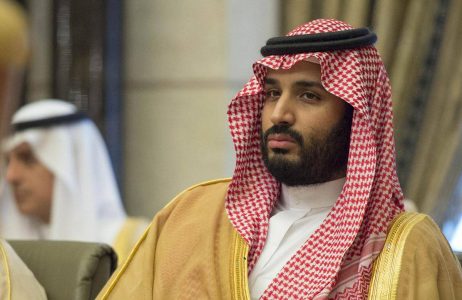
Did Mohammed bin Salman give jihadis the world’s greatest terrorist recruiting tool?
Anger at the presence of U.S. troops on sacred Saudi soil led Osama bin Laden to found al Qaeda and wage jihad on the West. The crown prince’s decision to welcome them back could light the fuse again.
n July 11, 1995, an open letter was faxed to the king of Saudi Arabia denouncing him as an infidel. The public accusation was shocking enough, but what made this event particularly stunning was the author’s status as the scion of a major Saudi family and, until recently, a member of the Saudi inner circle.
“Your alleged kingdom in reality is nothing else but an American protectorate governed by the American Constitution,” Osama bin Laden wrote to King Fahd. Your infidelity and apostasy, he continued, “is as clear as sunlight at high noon.”
Bin Laden went on to wage global jihad under the banner of al Qaeda. The first line of his first fatwa in 1996 beseeched Muslims to “expel the polytheists from the Arabian Peninsula,” whose troops were, in his view, defiling sacred soil.
Those soldiers eventually departed in 2003, after Saddam Hussein was removed in the U.S.-led invasion of Iraq. Paul Wolfowitz, the U.S. deputy defense secretary at the time, spoke of “a huge recruiting device for al Qaeda” and “lifting that burden” for the Saudis.
Sixteen years later, on July 19, as military tensions with Iran intensified, the Saudi Press Agency announced that U.S. combat troops were returning to the kingdom. The Prince Sultan Air Base will soon host an estimated 500 U.S. soldiers, fighter jets, and patriot missiles.
That Riyadh would reopen this controversial file is yet another reflection of the risk appetite of its crown prince, Mohammed bin Salman. The prince is essentially wagering that, among his people and the clerical establishment, current hostility toward Iran will overshadow any lingering anti-U.S. sentiment. It’s a risky bet.
Allowing the return of U.S. troops is part of a pattern of high-stakes gambles by the crown prince. This includes the war in Yemen, which his ally, the United Arab Emirates, has now backed away from and which has carried with it a series of scarcely justifiable costs—from diplomatic and security difficulties to reputational damage to, above all, humanitarian devastation. Other gambles include the mass detention of Saudi tycoons and royals on corruption charges and the brutal slaying of the dissident journalist Jamal Khashoggi at the Saudi Consulate in Istanbul last year.
Most recently, Mohammed bin Salman has sought to transform Saudi society from above, by curbing the morality police, overhauling female guardianship laws, allowing concerts and cinemas, and permitting women to drive—while arresting activists who have long pushed for the very same liberties.
Saudi relations with Israel have also rapidly warmed, powered by mutual hostility toward Iran. In February, the Saudi state minister for foreign affairs attended the U.S.-led Warsaw summit alongside Israeli Prime Minister Benjamin Netanyahu. Last month, a Saudi influencer, Mohammed Saud, took part in a state-sponsored visit to Jerusalem—where he was heckled as a “traitor” by Palestinian children—and performed a song in Hebrew for Netanyahu. The Saudi government is at pains to deny that diplomatic normalization has taken place, knowing that the Israeli-Palestinian conflict remains an emotionally charged issue across the region and within Saudi Arabia itself.
Source: Foreign Policy





